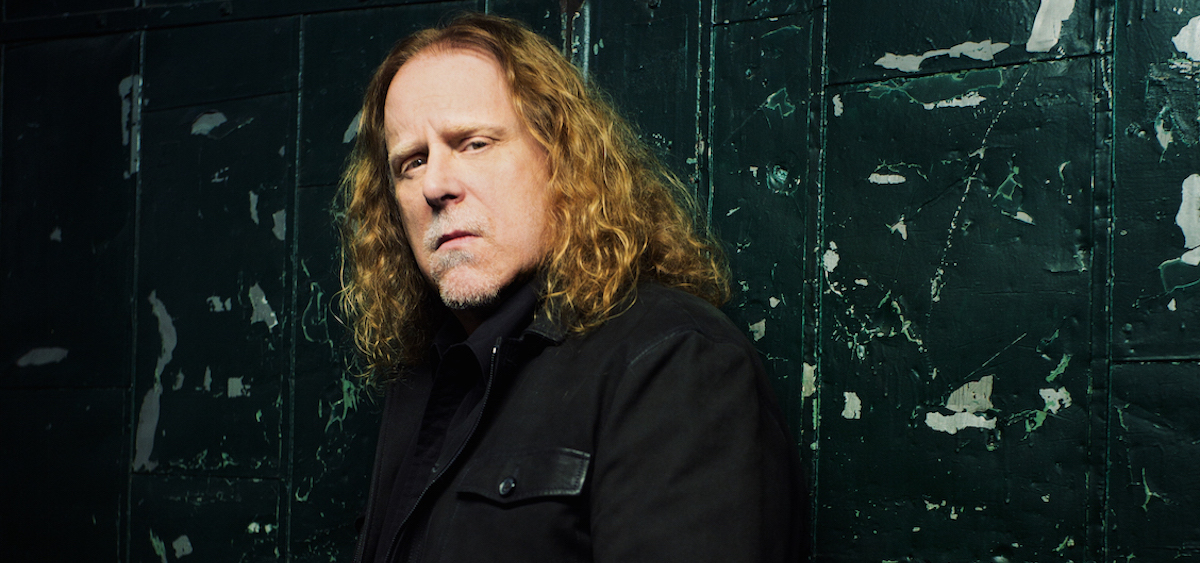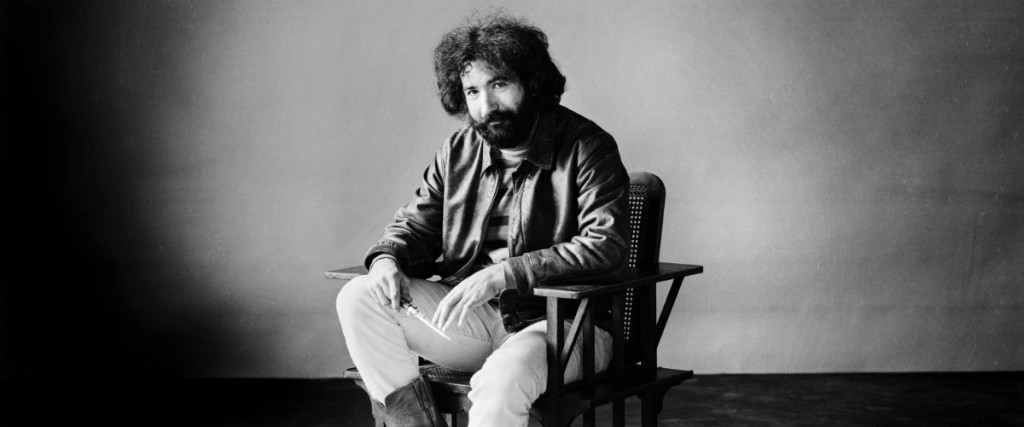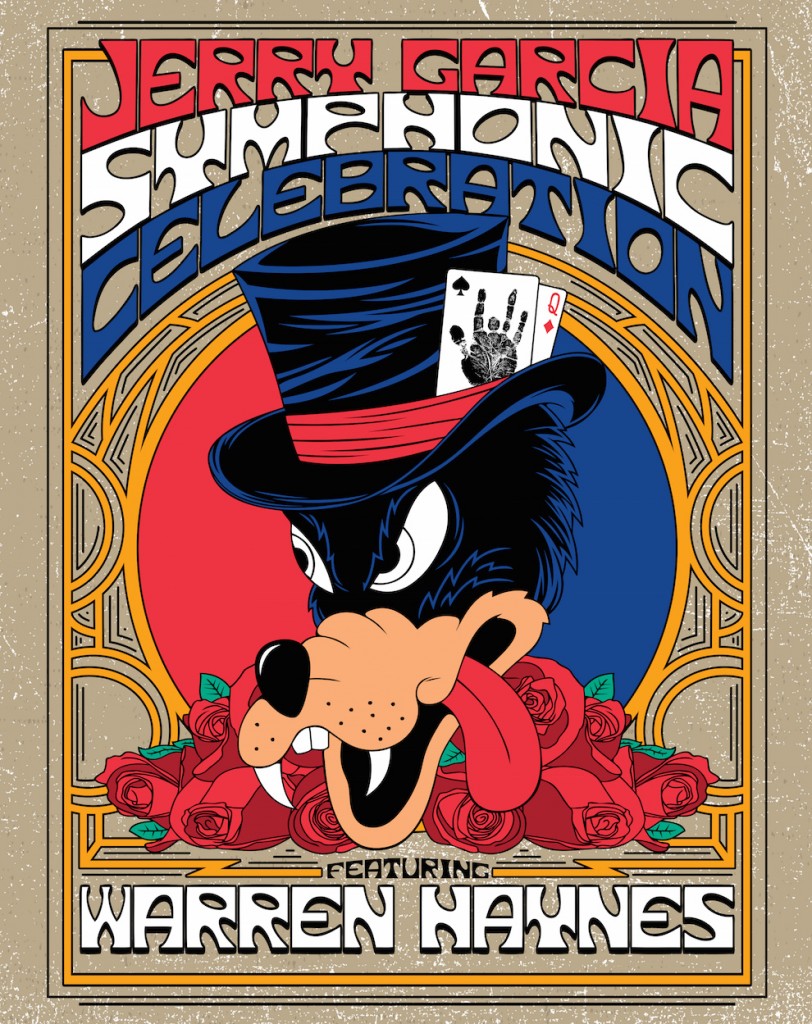Culture

Jerry Garcia Symphonic Celebration Featuring Warren Haynes June 29
By: Emily Votaw
Posted on:
Although Jerry Garcia passed away over two decades ago, his musical legacy lives on, and in more ways than one.
In 2013 the Jerry Garcia estate reached out to Warren Haynes (long-time guitarist for The Allman Brothers Band, and one of the founders of jam band greats Gov’t Mule) to head a series of concerts that would take classic Garcia tunes and back them up with guest artists like Jerry Garcia Band vocalist Jacklyn LaBranch, jazz fusion drummer Jeff Sipe (Aquarium Rescue Unit, Zambiland Orchestra) and many others. The concerts would also feature the beloved tunes backed by a full symphony,m an environment to which the songs had never been exposed to before.
And so the Jerry Garcia Symphonic Celebration was born. The concerts have been pretty limited in their runs, but on June 29 the celebration will come to the Clay Center in Charleston, WV. The performance will be backed up by the West Virginia Symphony Orchestra. For additional tour dates, visit jerrygarcia.com/event
Several days before the Charleston performance, WOUB’s Emily Votaw spoke with Haynes about what it means to bring Garcia’s music back to the masses, how it feels to play one of Garcia’s signature guitars and what’s up next for Gov’t Mule.

WOUB: What does it mean to you, personally, to be taking these beloved songs on the road?
Warren Haynes: I was honored when they called me three years ago and asked me if I would be interested in doing this. You know, I have a long association with the band and all the individual members, and I’ve played a lot of these songs throughout the years, but it was an opportunity to not only work with a symphony for the first time but to take this incredible body of music and pick the songs that I thought would work best with an orchestra and arrange those songs the way that I wanted to arrange them and give them to orchestral arrangers to take from there. It allows me to present the songs in a completely different light than people are used to hearing them.
WOUB: What are some of the differences that you are bringing to those arrangements and to the experience of hearing those songs as a whole for the audience?
WH: Well, I thought the most important thing was to pick the songs that would marry well with a symphony; some songs in any catalog may or may not work. I’m not always a fan of taking rock songs or pop songs and adding symphony or orchestral production. I went through the catalog and picked the ones that I thought would really work and fortunately there were so many great songs in that catalog and so many that seemed to work well with the symphony, it was fun to pick the ones I wanted to do. People hearing them this way shines a whole new light on the songs themselves and the compositions and the orchestral treatment changes the complexion of everything.
WOUB: Absolutely. I really wanted to ask you to speak on the musical and cultural significance of Jerry Garcia’s legacy.
WH: I’ve been quotes several times as saying that as important as the Grateful Dead’s style of improvising is and was, I think historically what will be as much or more relevant will be the songs themselves. What a great catalog of songs those guys wrote. The Garcia-Hunter songs, particularly. There are so many of them and mostly those are the songs that I am choosing from for those shows. You get to really hear the depth of those compositions. They’re not just influenced strictly by the current era at that time or the previous decade or even the previous two decades. I think that the influence goes decades backwards and you can hear all types of roots music, but you also hear Americana, George Gershwin and Irving Berlin; all the great song craft influenced this music as well.
WOUB: Is that something that is even more apparent to you when you are arranging these songs to have them performed alongside a symphony?
WH: Yeah, I’ve been playing and singing these songs for quite a long time. But when you delve into them in symphonic scenario, you get an even deeper sense of the influence of the music and it’s nice to kind of shine a light on that as well.
WOUB: I read in the press materials that you’ll be playing Jerry Garcia’s Wolf guitar at these shows. Is that the real deal you’ll be playing at these shows or a reproduction?
WH: It’s the real guitar.
WOUB: That’s incredible! Is that owned by you or the Jerry Garcia estate?
WH: It’s own by an individual who was kind enough to loan it to us for these shows.
WOUB: What does it feel like to play a guitar that is tied to that music in such a tactile way?
WH: It’s a beautiful instrument and I was looking forward to trying it two and a half years ago when I first played these shows. And I instantly felt like I was very comfortable and at home with that instrument, especially in the context of playing these songs, I feel like it puts me even closer to the music. It instantly gives me a sound that is more associated with Jerry Garcia and therefore kind of inspires me to play with even more of his influence than I usually would.
WOUB: I wanted to ask you some questions about Gov’t Mule, but is there anything else you’d like to say about brining the Jerry Garcia Symphonic Celebration to Charleston?
WH: I’m just really excited to be bringing this show to Charleston, there are only a handful of shows and I’m glad that it worked out that we’re playing there.
WOUB: I did see that there is a very limited run of these shows, is that something that was purposeful?
WH: We did a tour two years ago and it was very fun and very successful, so we wanted to do a few more shows, but my schedule is very busy and we’re only able to squeeze about ten shows, all told, into a year.
WOUB: I see that Gov’t Mule is going on tour later this summer, is that correct?
WH: Yeah, we have a tour coming up with Gov’t Mule and Blackberry Smoke, which is going to be a lot of fun. And then later in the year we’re doing a few shows with ZZ Top, and that will be a lot of fun too. And then we’re doing some shows on our own and then we’re going to start making another Gov’t Mule record towards the end of the year.
WOUB: And then in August Gov’t Mule is releasing the Tel-Star Sessions, correct?
WH: Yeah. Those are the first recording that we ever did in 1994 and I’m very psyched to put them out. I just heard them for the first time in years and years about two years ago and really was reminded how great those recordings were. They remind me why we became a band in the first place, of that chemistry that the three of us had right from the beginning.


